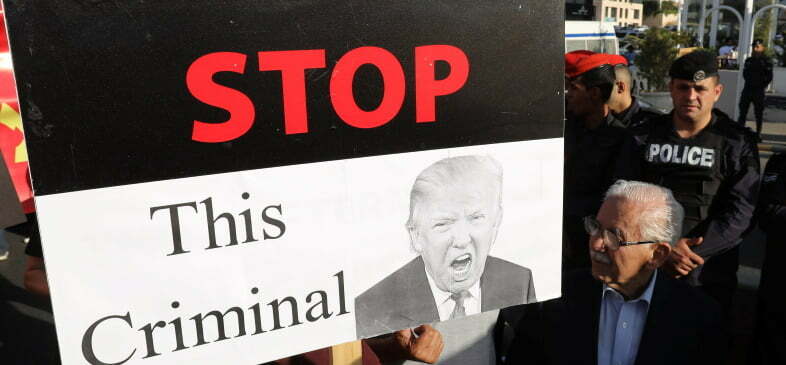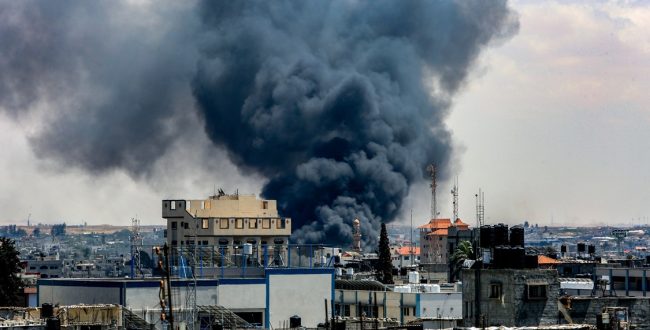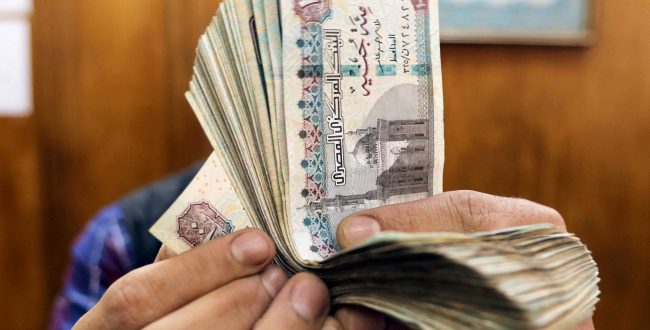The “Deal of the Century” proposed by President Trump did bring the Palestinian question back into the center of public debate, but also put the Palestinian leadership back in its comfort zone of the grumpy rejectionist. The significant departure of Trump’s plan from proposals that emerged in previous rounds of negotiations in Camp David and Annapolis – as well as the prominent role of right-wing American Jews on the Trump team – made it easier for the Palestinians to reject the “Deal of the Century” and pass an Arab League resolution condemning the outline.
But the Arab world today is less unified – and significantly less effective – compared to 2002, when the Saudi Peace Initiative (which later became the Arab Peace Initiative) came into being. Two decades ago, the Saudis and Jordanians managed to convince the countries of the “rejectionist bloc,” chief among them Syria, to acquiesce to the Arab Peace Initiative; today Saudi Arabia and other Gulf countries are sounding growing criticism of Palestinian intransigence.
The statement published by the Saudi Ministry of Foreign Affairs following the speech by President Trump reflected a movement away from the multilateral Arab Peace Initiative in favor of bilateral peace talks between the Israelis and Palestinians under American auspices. “The Kingdom appreciate [sic] the efforts of President Trump’s administration to develop a comprehensive peace plan between the Palestinian and Israeli sides,” the statement read. Decision no. 8457 adopted by the Arab League following the publication of Trump’s plan did call for the resumption of peace talks in “an international forum attended by multiple sides” (as demanded by Abbas, who now rejects any American mediation), but mentioned the Arab Initiative only in article 4 of the decision, as the “minimal Arab demand for achieving peace.”
The shift in the Saudi position was expressed by journalist Abd a-Rahman Rashed, the former Chief Editor of the daily al-Sharq al-Awsat. In an op-ed published in the paper on January 28 under the headline “if the negotiations were to resume,” Rashed argued that time is not on the side of the Palestinians, in a Middle East where Arab countries are collapsing one after the other.
“The Palestinians are resorting to their old position: ‘we reject the outline even though we don’t know what it is’,” wrote Rashed. “The only loser from the destruction of the peace plans are the Palestinians. Not the Iranians nor the Israelis. With every sunrise, Israel expands further and Palestinian lands shrink.”
Rashed presented the previous steps of the Trump administration, including recognizing the annexation of the Golan Heights and moving the U.S. embassy to Jerusalem, as populist and rhetorical. “Palestinian passivity is more dangerous than what Trump is doing, because they sit and wait for a miracle,” argued Rashed, as he praised Abu Mazen as the veteran pragmatic politician in the Palestinian arena. “Does accepting Trump’s proposal mean that the Palestinian Authority should sign a blank cheque? Of course not. They are expected to sit and discuss and express goodwill. No one will impose a solution that the Palestinians do not want.”
Dr. Anwar Gargash, the Emirati Minister of Foreign Affairs, expressed a similar opinion. On the eve of the Arab League vote, he tweeted that “it is important that the Arab League and Organization of Islamic Cooperation issue a productive position that goes beyond statements of condemnation. A realistic and strategic decision will counter the frustrations of recent years. Rejectionism and self-flagellation without finding realistic alternatives are historic mistakes for which we will pay dearly.”
It may have been this shift in the Arab position that Deputy Secretary of Hamas’ Political Bureau, Mousa Abumarzook, was addressing when he wrote on Twitter: “to those who claim that the Palestinian “no” is a mistake, they are native. Saying “yes” is an admission of defeat and giving our rights to our enemies, while thousands of “no’s” will not eliminate our just cause, but one “yes” will close one chapter and open another.”
The Arab debate between those who believe that time is on the Palestinian side, and those who believe it is against them will continue for the foreseeable future. Meanwhile, the unwavering support given by the Arabs to the Palestinian leadership over Israel – the only glue that held the divided Arab world and gave it a measure of comfort – is quickly eroding.


















